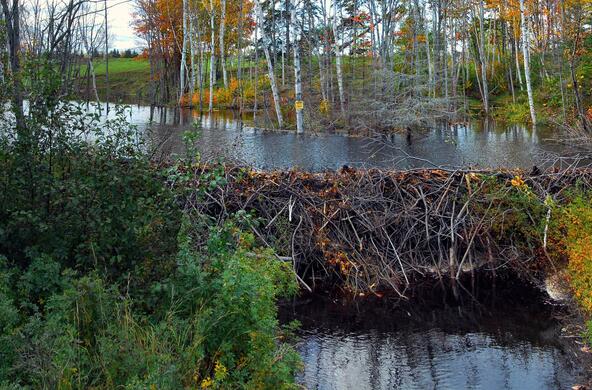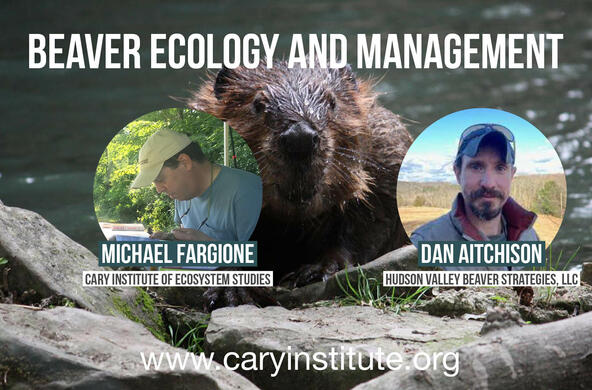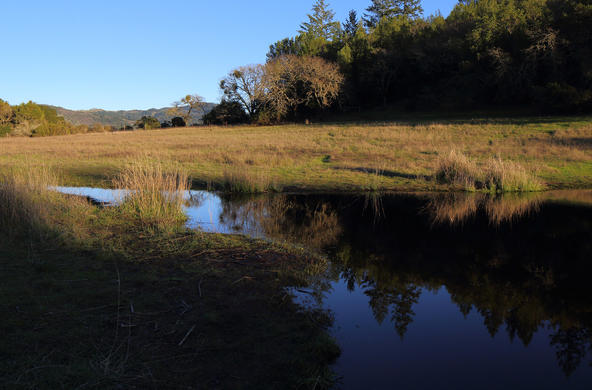Please note, this interview originally appeared in the May 2014 issue of BIODIV 2050. You can access the full article in this PDF.
Clive Jones is recognized as a pioneer in ecosystem engineering and ecological engineering. He tells us about the relationship between ecological engineering and ecological compensation. His work focuses on the concept of organisms that help to engineer the ecosystem.
How do you define ecological engineering?
At the present time, most economic systems treat the goods and services provided by nature as externalities. We do not generally pay to benefit from them or administer them (with the exception of natural parks or a really important commodity such as water) because we have externalized them from our economic systems even though we are highly dependent on them. This would not matter if we didn’t destroy the environment, but man’s impact has simply become too great and we need to manage this impact. An economic approach would suggest that we incorporate non-market goods and services (derived from nature) into an economic framework to make them compatible with the existing system. Ecological compensation is therefore an attempt to reintegrate these goods and services into mainstream economics.
For example, if you drain a wetland to build housing, an ecological compensation approach would require that you restore, replace or recreate a comparable wetland to compensate for the loss of the initial wetland. To put it in economic terms, you need to put some sort of a value on the functioning of the wetland that may serve as the economic basis for determining the amount of compensation required from the developer, or to be paid to whoever restores or creates a new wetland.
Ecological engineering is used to implement compensatory measures. Given the uncertainty concerning ecological knowledge, to what extent do you believe that ecological engineering can make it possible to restore natural habitats?
Because of their complexity, it is very difficult to gain a really comprehensive understanding of ecosystems. Although ecosystem trajectories can be partly predicted from ecological principles, they remain relatively unpredictable. We cannot treat an ecosystem like a machine where you simply change the different parts to get it working again. An ecosystem has a multitude of interacting components influenced by external phenomena and its capacity to adapt, which means that it is in a state of perpetual evolution. Ecological engineering is therefore of limited use for forecasting purposes and this is where economics and ecology clash: economics is a constant quest for certainty.
It is by no means impossible to understand ecosystems and thanks to advances in ecological knowledge, we can hazard a fairly good estimate of future trajectories and intervene to change these. But I believe that restorative action does not always work, and even when it does work, it does not always work out as expected. This is not a problem with the ecosystem but with our understanding of it. In the example of the restoration of a wetland, some of the functions you see will appear and persist over time. While we can predict the creation of a habitat and water purification, we cannot predict how much or for how long.
How do the limits of ecological engineering apply to ecological compensation?
One of the fundamental problems is that when you attach a monetary value to something, this implies a certain degree of certainty. Economic transactions imply a certain known value for certain functions. This is a bit of an illusion because in reality, economic systems exhibit the same blend of principles, stochastic dynamics and historical inertia. They are also complex, interdependent systems. When you implement a biodiversity offset, you cannot predict exactly what will happen from an ecological perspective. This problem is bound up with the inherent unpredictability of ecological systems faced with the illusory belief in economic predictability.
But neither can we keep ecosystems as they are because even in their natural state they are in a state of flux and we have a huge influence on them. In other words, we can’t simply erect barriers to preserve nature and hope that nothing will change, and neither can we turn the clock back. Nature is not a market commodity but incorporating it into the current market-based system may be one way of ensuring that it is taken into consideration and I believe that this is what accounts for the emergence of the principle of ecological compensation. Somebody should pay if they destroy nature and we should pay somebody for trying to restore it. In a rapidly changing world, I don’t think that we have yet grasped how to deal with this most effectively.
I therefore believe that we need to shift the conceptions that we have both of society and economics. We need to change mindsets, get away from assumptions of certainty and predictability and embrace the uncertainty that ecology now recognizes as inherent to ecosystems.






